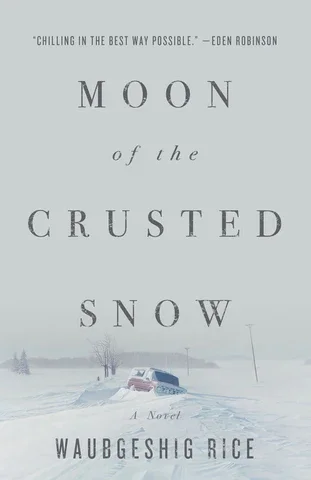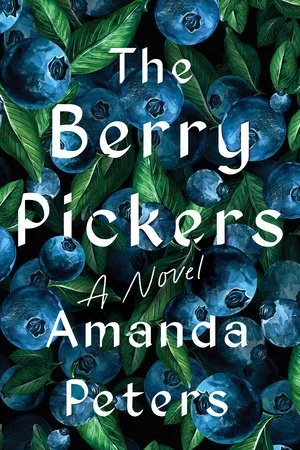Reconcile The Truth: Indigenous History in Fiction
/Indigenous histories have been overshadowed by the powerful force of the 41.6 million white people in Canada, which means more than ever we must adopt the practice of Truth and Reconciliation. A process that requires confronting hidden stories directly, to honour those who suffered and to inspire a meaningful change. Today, we will revisit Indigenous history through a collection of novels that have been released within the last 10 years that touch on colonialism, racism and the Missing and Murder Indigenous Women and Girls (MMIWG) Movement, showing that you have access to start your reconciliation today.
Moon of the Crusted Snow
Credits to the ECW Press
‘Moon of the Crusted Snow’ by Waubgeshig Rice is a story about an Anishinaabe Reserve in Northern Canada surviving through a snowstorm as their communication with the outside world is taken away, and their food supply dwindles. That is until refugee, Justin Scott seeks aid, or rather a takeover. This book is one mass allegory for colonialism and its depicted through the character, Justin Scott, who plays as the European Settler. When the reader meets Scott, we learn he is heavily armed and has murdered other refugees, which sparks hesitation and curiosity within the community. An easy comparison to the wrongful murders of Indigenous lives throughout history, however, Scott makes himself at home to survive the winter by creating a squad to gather resources. Dividing the reserve, the main character, Evan Whitesky, discovers that members of Scott’s squad are becoming cold, weak, and thin by the second.
With more digging, the climax of the book reveals the horrible treatment Scott has put these innocent Anishinaabe people through, which directly correlates to real life events of European Settlers subjugating communities through advanced weaponry, introducing diseases that sparked mass death, and exploiting Indigenous labour through hunting as noted in Scott’s attempts to have his squad intimidate the women to do their dirty work where they could freeze to death. Understanding and studying how colonialism is prevalent for reconciliation is essential for building relations and respect with Indigenous communities. Respect is shown by preventing monopolizing power over the Indigenous peoples and instilling Indigenous culture and tradition into education to enforce the fight of bringing traditional languages and celebrations back, this helps Canadians understand what Canada is and what it should be.
The Berry Pickers
It doesn’t end there, ‘The Berry Pickers’ by Amanda Peters discusses the MMIWG Movement and the racism associated to it, evidently, ‘The Berry Pickers,’ set in 1962, is about a Mi’kmaq family in Nova Scotia who travel to Maine to work on a blueberry farm. Consequently, Ruthie, the family's four-year-old daughter, is abducted by another family. While a search party occurs, no justice stems from it, especially with the police who show disinterest towards helping migrant workers. This leads the family to reluctantly go home in grief as they attempt to continue living without their daughter and sister. The Indigenous identities of this family are the focal point of the harsh realities of systemic racism brought upon young Indigenous females, especially when in the real world, this is a critical issue. Early 2010 to April 2024, there has been 185 identified cases of MMIWG with 124 still reported as missing cases, 25% of those cases were in Alberta, but 9% were in smaller urban areas, like Nova Scotia.
Credits to Harper Perennial
Now, critics pointed out how it was unrealistic that the police did not aid in the search, however, Peters stated that this was common for police to not take missing cases seriously when the victim wasn’t Caucasian. It is critical to inform yourself of this because after continuous years of Indigenous communities publishing seminal reports from the MMIWG National Inquiry, there has yet to be substantive change in how the justice system operates. That is because of the ongoing racism seen in police departments that has normalized the continuous suppression of Indigenous communities throughout Canada.
As you reach the end of this, take with you that Truth and Reconciliation will forever require understanding of Indigenous experiences, past and present. By choosing to read Indigenous literature, you participate in the ongoing process of seeking community, respect, and education so Canada can be a place for everyone.
Cheyenne Marks is a local Ottawa Mohawk writer with a knack for scrapping and redoing every idea that sparks her mind, except for opinion pieces. Currently a student in the Professional Writing program at Algonquin College, Cheyenne has a goal to be an Indigenous author and essayist, and a voice for Indigenous communities when they feel the least heard. She enjoys sweet treats and has a belief that taking photos of the books she reads with her daily coffee in it makes her seem cool. So, join her as she expresses her thoughts over the literary community and shares her sweet treats.




